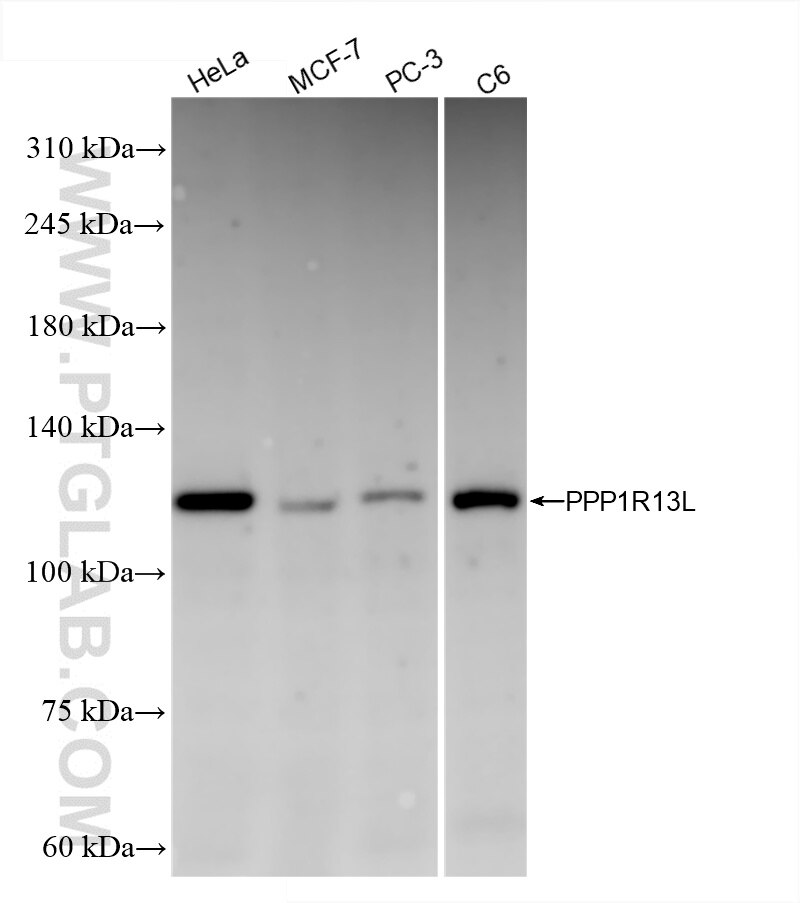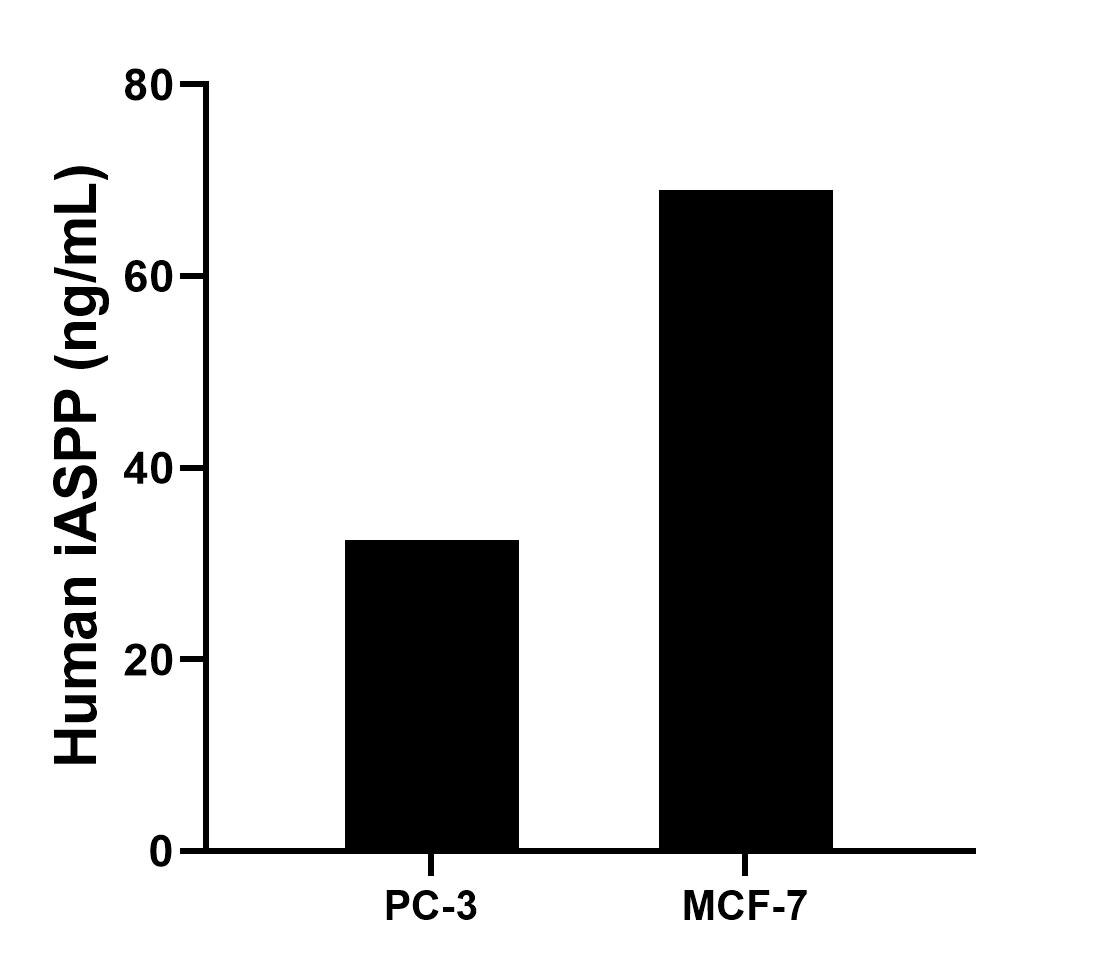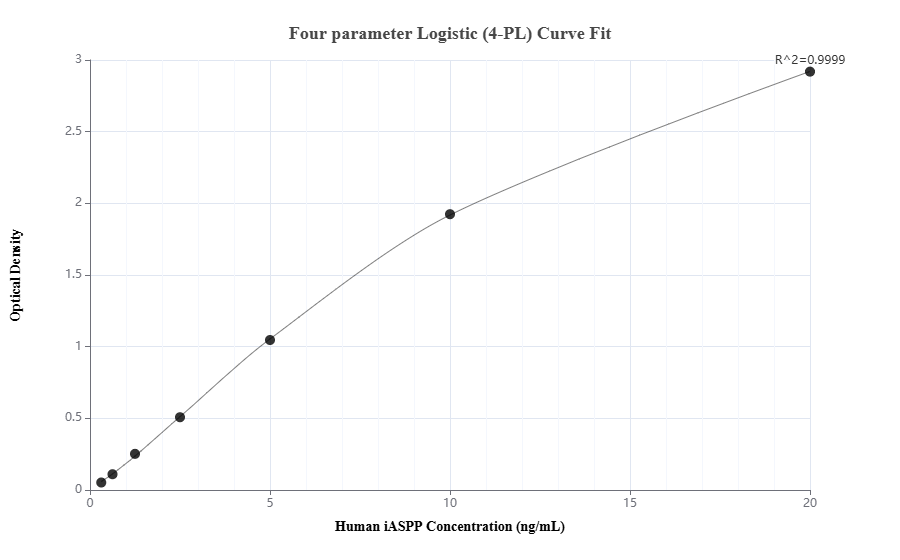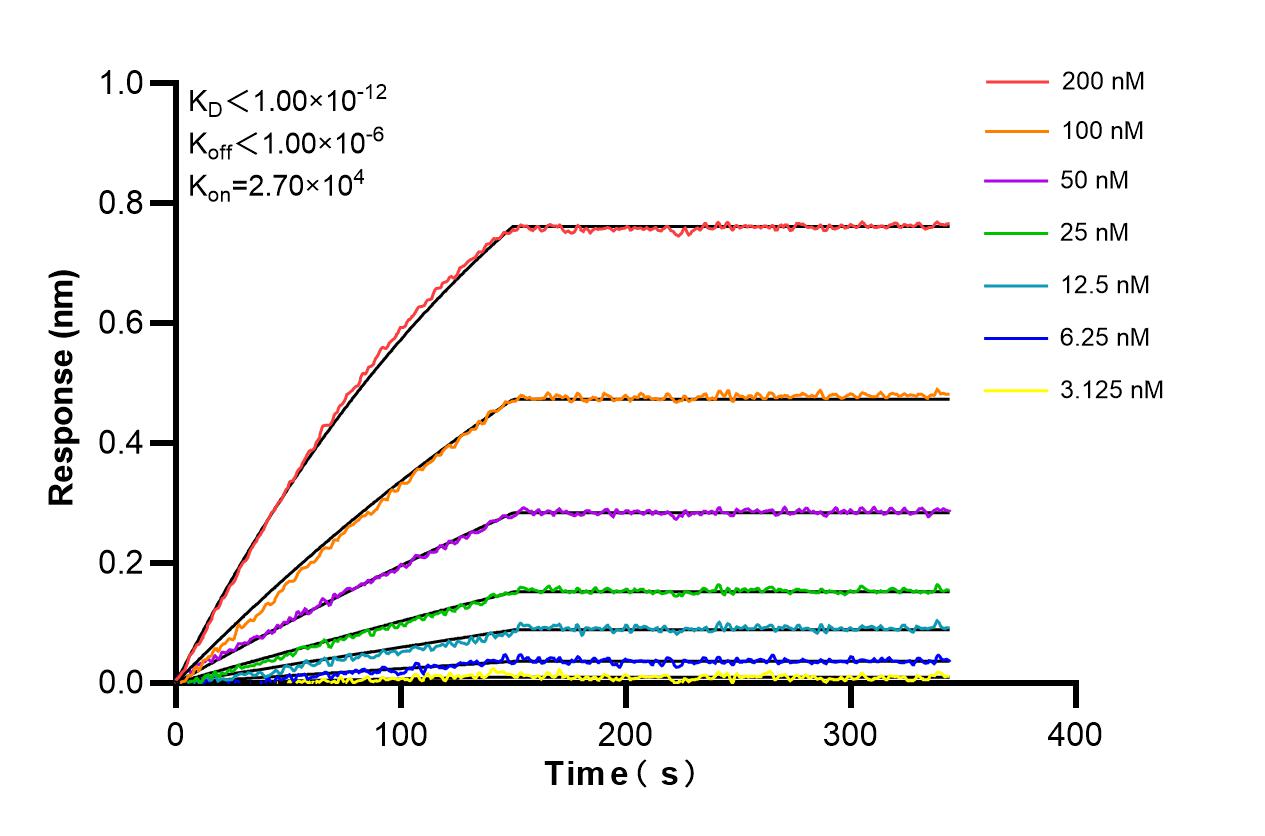Product Information
86044-1-PBS targets iASPP as part of a matched antibody pair:
MP02334-1: 86044-3-PBS capture and 86044-1-PBS detection (validated in Sandwich ELISA)
Unconjugated rabbit recombinant monoclonal antibody in PBS only (BSA and azide free) storage buffer at a concentration of 1 mg/mL, ready for conjugation. Created using Proteintech’s proprietary in-house recombinant technology. Recombinant production enables unrivalled batch-to-batch consistency, easy scale-up, and future security of supply.
This conjugation ready format makes antibodies ideal for use in many applications including: ELISAs, multiplex assays requiring matched pairs, mass cytometry, and multiplex imaging applications.Antibody use should be optimized by the end user for each application and assay.
| Tested Reactivity | human, mouse |
| Host / Isotype | Rabbit / IgG |
| Class | Recombinant |
| Type | Antibody |
| Immunogen |
CatNo: Ag13273 Product name: Recombinant human PPP1R13L protein Source: e coli.-derived, PET28a Tag: 6*His Domain: 481-829 aa of BC064913 Sequence: EGPVARPLSPTRLQPALPPEAQSVPELEEVARVLAEIPRPLKRRGSMEQAPAVALPPTHKKQYQQIISRLFHRHGGPGPGGPEPELSPITEGSEARAGPPAPAPPAPIPPPAPSQSSPPEQPQSMEMRSVLRKAGSPRKARRARLNPLVLLLDAALTGELEVVQQAVKEMNDPSQPNEEGITALHNAICGANYSIVDFLITAGANVNSPDSHGWTPLHCAASCNDTVICMALVQHGAAIFATTLSDGATAFEKCDPYREGYADCATYLADVEQSMGLMNSGAVYALWDYSAEFGDELSFREGESVTVLRRDGPEETDWWWAALHGQEGYVPRNYFGLFPRVKPQRSKV Predict reactive species |
| Full Name | protein phosphatase 1, regulatory (inhibitor) subunit 13 like |
| Calculated Molecular Weight | 89 kDa |
| Observed Molecular Weight | 110 kDa |
| GenBank Accession Number | BC064913 |
| Gene Symbol | PPP1R13L |
| Gene ID (NCBI) | 10848 |
| Conjugate | Unconjugated |
| Form | Liquid |
| Purification Method | Protein A purification |
| UNIPROT ID | Q8WUF5 |
| Storage Buffer | PBS only, pH 7.3. |
| Storage Conditions | Store at -80°C. |
Background Information
Inhibitor of apoptosis-stimulating protein of p53 (iASPP), encoded by PPP1R13L gene, is often overexpressed in human cancers. The ASPP family includes three members, namely ASPP1, ASPP2, and iASPP, which are specific regulators of p53-, p63-, and p73-mediated apoptosis. ASPP1 and ASPP2 enhance the apoptotic function of p53, whereas iASPP specifically inhibits p53-mediated apoptosis. Overexpression of iASPP is associated with resistance to cisplatin-induced apoptosis and rediation therapy. iASPP plays a pivotal role in regulating cancer cell proliferation and tumor progression.










